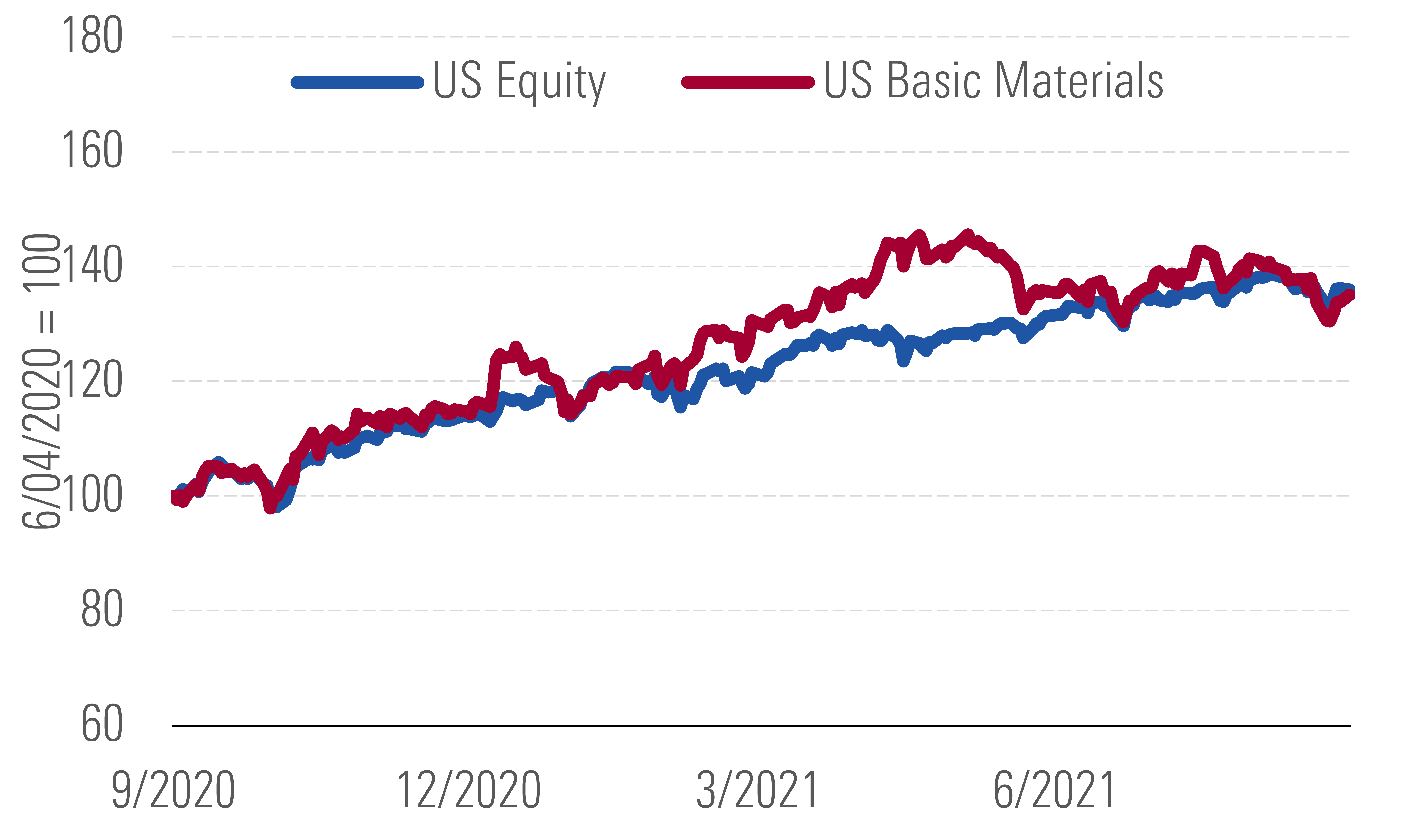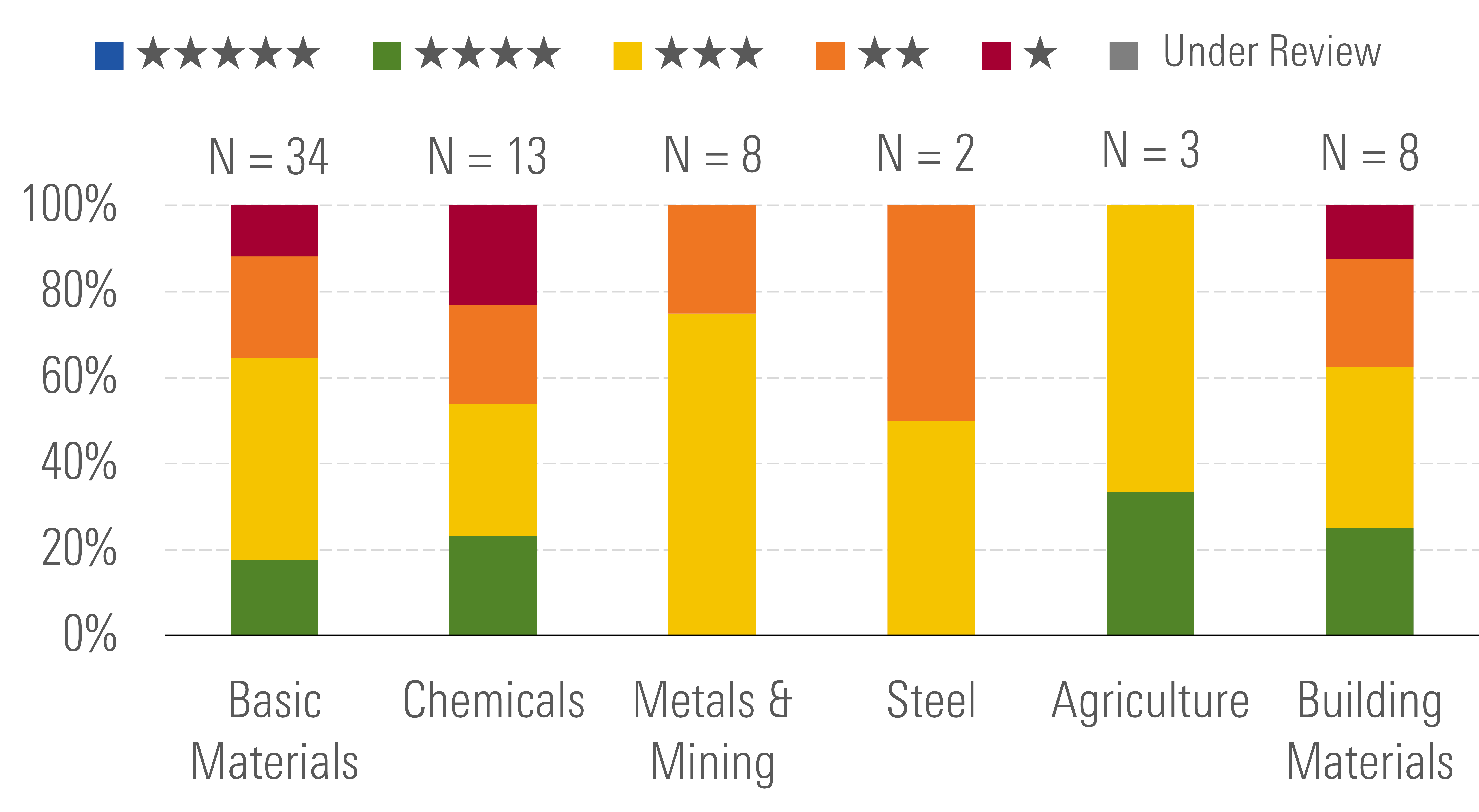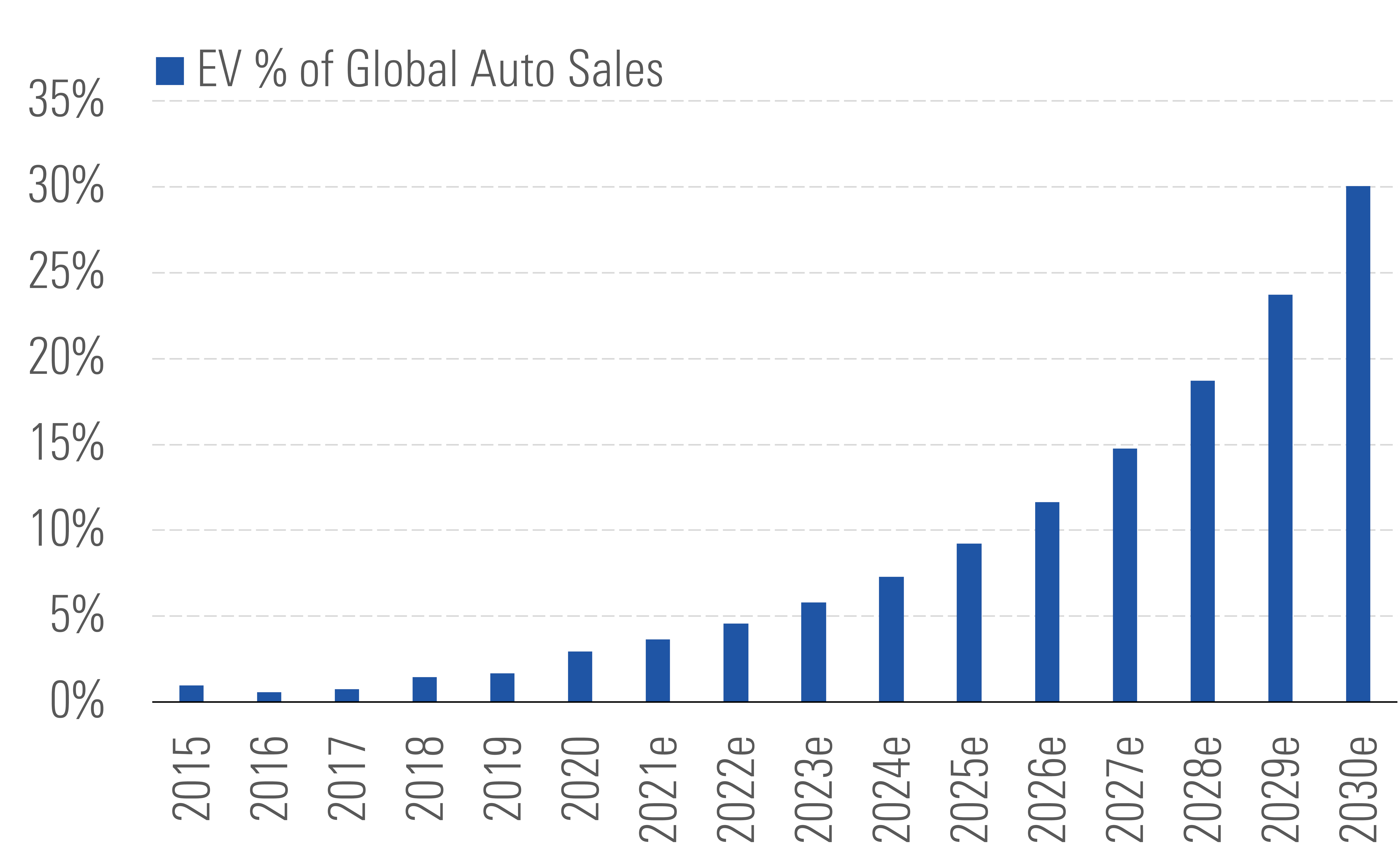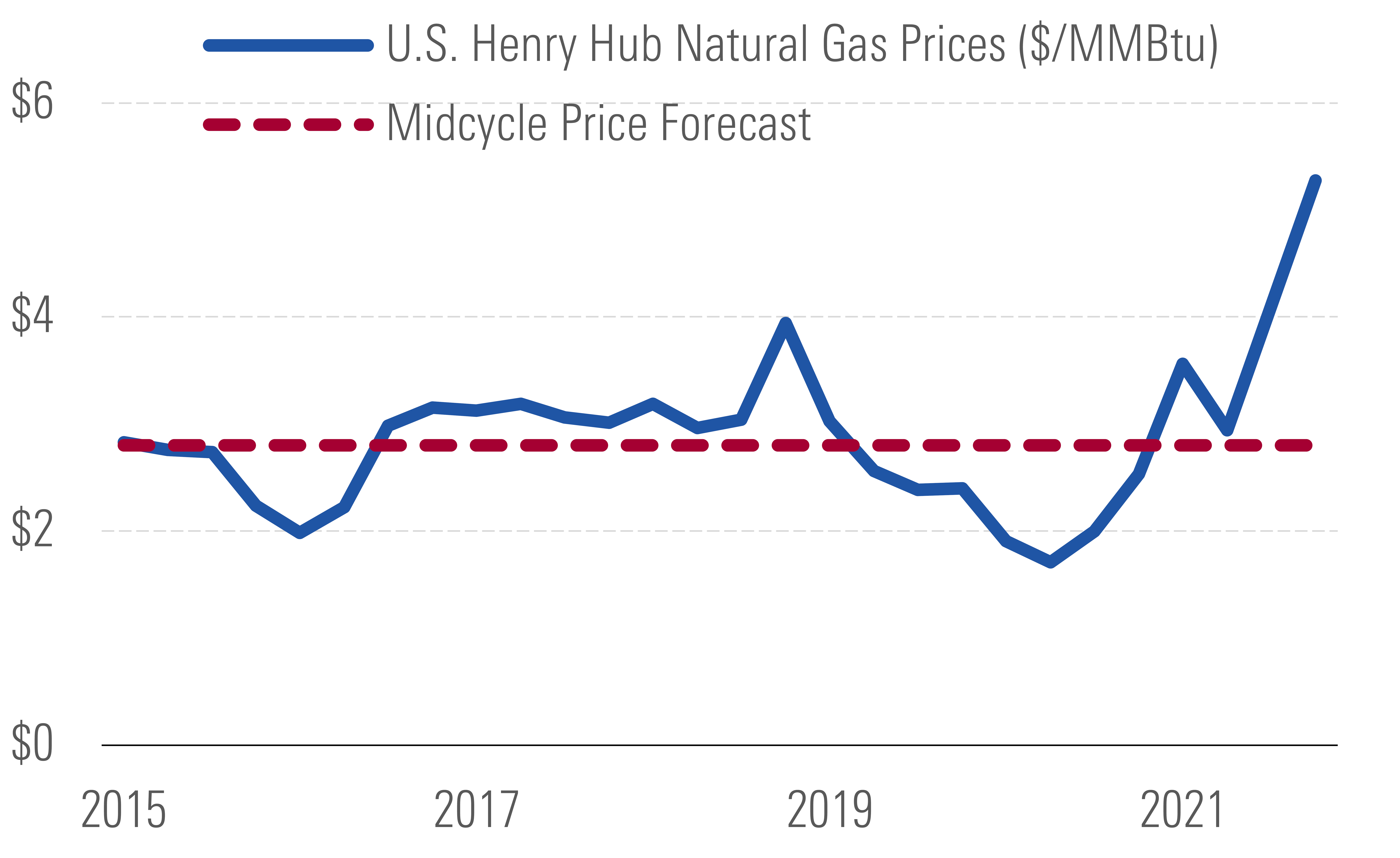Electric Vehicles Spark Growth for Basic Materials
There are few undervalued stocks in the sector.
The Morningstar US Basic Materials Index underperformed the broader market during the third quarter of 2021 by roughly 400 basis points. However, over a trailing one-year period, the sector has performed nearly in line with the market, underperforming by just 80 basis points. We see limited opportunities across the sector, with a few undervalued names trading in 4-star territory, but none in 5-star.
Exhibit 1: Global Materials Index Versus Global Equity Index

- source: Morningstar
Because of the shift to electric vehicles, we see long-term growth for specialty chemicals producers that sell to the automotive sector, as chemical producers can generate more revenue per EV compared with an internal combustion engine vehicle. Chemicals are sold throughout the EV supply chain to battery makers, auto suppliers, and automakers. As EVs reach cost and functional parity with internal combustion engines, we expect EV adoption to grow from around 3% in 2020 to over 30% by 2030.
Exhibit 2: Most Materials Stocks Trade Near or Above Their Fair Value Estimates

- source: Morningstar
Nitrogen prices have risen from high demand as high crop prices led farmers to apply additional volumes. However, the price of U.S. natural gas, which makes up roughly half U.S. nitrogen producer costs, is at multiyear highs. The infrastructure constraints holding back gas supply are unlikely to be alleviated until 2022 at the earliest, which means gas prices are likely to remain above our midcycle estimate of $2.80 per million cubic feet. This limits profits from higher nitrogen prices. As natural gas prices fall in the long term, U.S. nitrogen producer profits should grow from lower unit production costs as nitrogen prices are typically informed by higher-cost producers that use Chinese anthracite coal.
Exhibit 3: We Forecast That EVs Will Generate 30% of Global Auto Sales in 2030

- source: Morningstar
Deicing salt prices fell for the 2020-21 winter following a mild 2019-20 winter. Deicing salt demand volume is driven by winter weather. As such, prices tend to fall following a milder winter when producers carry excess inventory, leading to oversupply conditions, and rise following a harsher winter, when inventories are tight. The 2020-21 winter had average snowfall, and we expect prices to remain flat in the 2021-22 season.
Exhibit 4: We Forecast That Long-Term Natural Gas Prices Will Fall

- source: Morningstar
Top Picks
DuPont de Nemours DD Star Rating: ★★★★ Economic Moat Rating: Narrow Fair Value Estimate: $94 Fair Value Uncertainty: Medium
Our top pick to play specialty chemicals demand growth is narrow-moat DuPont. The stock trades at more than a 25% discount to our $94 per share fair value estimate. DuPont is well positioned to benefit from increased demand in many of its end markets. The company should see growing profits from greater adoption of electric vehicles, as it generates roughly 50% more revenue per EV than an internal combustion engine. The firm should also see increased demand from a growing number of 5G-enabled devices and a recovery in U.S. housing starts. We view the current share price as an attractive entry point for the high-quality specialty chemicals producer.
CF Industries Holdings CF Star Rating: ★★★ Economic Moat Rating: None Fair Value Estimate: $57 Fair Value Uncertainty: High
Pure-play nitrogen producer CF Industries is our top pick to play falling U.S. nitrogen input costs. The stock trades right below our $57 per share fair value estimate. The vast majority of CF’s nitrogen is produced from U.S. natural gas, while marginal cost producers, which typically inform prices, make nitrogen from Chinese anthracite coal. As U.S. natural gas prices fall, CF's profit margins should expand.
Compass Minerals International CMP Star Rating: ★★★★ Economic Moat Rating: Wide Fair Value Estimate: $85 Fair Value Uncertainty: Very High
Wide-moat Compass Minerals is our top pick to play a rebound in deicing salt prices, trading at nearly a 25% discount to our $85 per share fair value estimate. Compass’ cost-advantaged salt production stems from its Goderich mine, which also benefits from being on Lake Huron. This allows Compass to both produce and transport at a lower cost than competitors. Although Compass has endured higher costs in recent years owing to temporary operational issues, unit costs have since fallen, and we expect further declines over the next couple of years, leading to higher profits.

/s3.amazonaws.com/arc-authors/morningstar/ca8d2ce1-cd0f-433b-a52b-d163be882398.jpg)
/cloudfront-us-east-1.images.arcpublishing.com/morningstar/NNGJ3G4COBBN5NSKSKMWOVYSMA.png)
/cloudfront-us-east-1.images.arcpublishing.com/morningstar/6BCTH5O2DVGYHBA4UDPCFNXA7M.png)
/cloudfront-us-east-1.images.arcpublishing.com/morningstar/EBTIDAIWWBBUZKXEEGCDYHQFDU.png)
:quality(80)/s3.amazonaws.com/arc-authors/morningstar/ca8d2ce1-cd0f-433b-a52b-d163be882398.jpg)